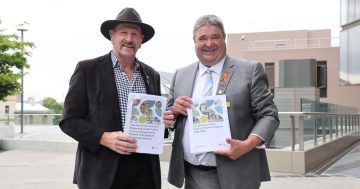 Cypriot President, Nicos Anastasiades has thrown his weight behind proposed legislation to modernise the country’s Public Service saying it was the key to the nation’s success in the second quarter of the 21st century.
Cypriot President, Nicos Anastasiades has thrown his weight behind proposed legislation to modernise the country’s Public Service saying it was the key to the nation’s success in the second quarter of the 21st century.
Mr Anastasiades (pictured) took his message to the annual meeting of Pasydy, the main Public Service union.
“After seven years of intense disagreements and needless talks there is finally the opportunity to modernise,” Mr Anastasiades said in his address to the meeting.
“It is possible to pass a series of Bills which will, despite alterations from the initial proposals, significantly improve the functioning of the State mechanism.”
He said the reforms would bring in a new evaluation model for employment, leading to jobs being staffed by those who were the most suitable, based on measurable and objective criteria.
“Performance appraisals will see the most capable being promoted, while incentivising the workforce to better serve the nation,” Mr Anastasiades said.
He noted that efforts had been continuing for years to implement such a system, amid widespread concerns of incompetency, nepotism and corruption.
In January, MPs finally gave initial approval to legislation which seeks to remove the bias towards seniority over ability and performance when Public Servants receive promotions.
Under the previous system, it was not possible for Public Servants to be graded below ‘excellent’ whatever their performance.
Efforts to pass the reforms through Parliament had stalled for years, despite multiple reviews which found glaring shortcomings in the public sector, particularly in the wake of the 2013 financial crisis.
President of Pasydy, Antonis Koutsoullis said the union supported the reforms as a significant step towards modernising and upgrading the public sector.
“This is especially in terms of developing a more meritocratic handling of the staff and the consequent improvement of the services on offer to the Cypriot people,” Mr Koutsoullis said.
Questioned whether the Government should review public spending in the wake of the war in Ukraine, the President said it was not the time.
“Like we did throughout the COVID-19 pandemic, we are working with the European Commission to curb the effects of the sanctions issued against Russia on every member-State’s economic system,” Mr Anastasiades said.
Nicosia, 13 April 2022











